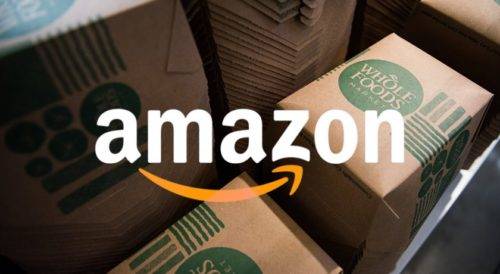By Zak Romanoff
Zak@omnifs.com
July 12, 2017
I’ve heard a wide range of opinions about Amazon’s recent purchase of Whole Foods for $13.7 billion, from “Whole Foods is going to immediately lower all its prices” to “this is the end of traditional retail stores”.
I disagree with both and here’s why…
Thanks to a steady customer base, Whole Foods has controlled 2-5 percent of grocery sales in the Metro New York market, according to Food Trade News Annual Market Study. But the chain has been struggling with sales since other retailers like ShopRite, Key Foods, Associated, C-Town, and other club/drug stores began carrying the same or similar “organic”, “antibiotic free”, and “all natural” products which Whole Foods was exclusively featuring years ago AND charging less for them. Have you ever heard the phrase “Whole Paycheck”?
The uniqueness of Whole Foods has been reduced. On top of that Whole Foods has not offered as wide of a variety of items as traditional retailers.
Amazon is an online shopping behemoth. They are re-defining where people shop on Black Friday and Prime Day in July has people shopping for Christmas deals in the middle of the summer. “Lightning deals” with “while supplies last” promotions attempt to create a rush/frenzy…
Amazon offers grocery delivery nationwide via its online shopping service AmazonFresh. In March of this year, the company launched its AmazonFresh Pickup service. Pickup allows Prime customers in the Seattle area to order online, drive to one of two pickup locations, and have groceries delivered to their trunk. AmazonFresh has been met with mixed reviews – some orders still have errors and the logistics aren’t all the way there yet.
Amazon has so much money that they can afford to roll the dice with a purchase like Whole Foods. Whole Foods has an established distribution model in place (UNFI is its primary distributor). I think details about how this model works is one of the main factors driving the deal – information about warehouses, trucking, storage, etc. This kind of information is not readily available in the marketplace. The way to obtain it is to acquire one who has the knowledge.
I see Amazon leaving Whole Foods alone for the most part because Whole Foods has its own internal/external battles to fight for survival in the marketplace. Amazon may use the intel to strengthen/improve its AmazonFresh home delivery service by better utilizing trucking and distributers from source to consumer (these savings can be passed along to consumers). If that is the real play, then traditional supermarkets and brands should prepare for a blitz from AmazonFresh in the future.
I’ve heard some concepts like checkout-free shopping in Whole Foods stores – where customers open an app on their phone while in the store, scan items on their own, and do not have to wait in line to pay. The registerless shopping experience is an idea being tested by Amazon. The company launched its first checkout-free concept store in December 2016, Amazon Go. The technology detects products in a virtual shopping cart and automatically charges the customer when they exit the store using the Amazon Go app. Currently the store is only open to Amazon employees in their Beta program.
There are a lot of moving pieces to a concept like this. How do you prevent theft? Can the technology handle a large volume of customers? An idea like this could take years to implement on a large scale. But I can see that happening. That could provide a real TIME savings to people’s lives, which is the main reason successful apps such as Uber, AirBnB, and Waze have become winners.
Takeaways:
Regardless of how good home/online/pickup/delivery gets, I believe a large majority of consumers will continue to enjoy walking their local supermarket to see, touch, and feel the products. Looking at other new products, comparing them to items they are familiar with, and reviewing the ingredient statements and nutrition facts. If innovations from Amazon and others are coming, traditional retail supermarkets and food manufacturers would be wise to increase their focus on improving the overall store shopping experience. For example:
- More in store health experts/classes/services
- Increased product sampling (customers #1 request of supermarkets is to be able to try more products in the store)
- More events/appearances from athletes/celebrities
- Building stronger brand loyalty through connection/participation in local communities
Agree? Disagree? Send me an e-mail, I would love to hear your thoughts… Zak@omnifs.com
OMNI Food Sales is a New York Food Brand Advocate sales and marketing company… Working with food brands to increase their sales/ launch new items at traditional grocery retailers in the Metro New York market…
Check out our short film about the market with the highest number of independently owned supermarkets in the country!
Follow me on Instagram @Zakromanoff


Recent Comments